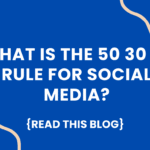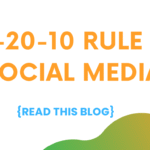
What is a social media marketing person?
Introduction to Social Media Marketing
In recent years, social media marketing has emerged as a cornerstone of modern business strategy. This marketing discipline leverages platforms such as Facebook, Instagram, Twitter, and LinkedIn to foster communication between brands and their target audiences. As technology evolves and consumer behavior shifts, understanding social media marketing has become crucial for businesses seeking to thrive in a highly competitive environment.
Table Of Content
- Defining the Social Media Marketing Person
- Key Skills Required for a Social Media Marketing Person
- Tools and Platforms Used by Social Media Marketing People
- Creating and Executing Social Media Strategies
- Measuring Success in Social Media Marketing
- Challenges Faced by Social Media Marketing Professionals
- Future Trends in Marketing
- Conclusion and the Importance of the Role
The importance of social media marketing lies in its ability to provide brands with diverse avenues for engagement. Unlike traditional marketing methods, which often rely on one-way communication, social media enables interactive dialogue. This fosters not only brand awareness but also customer loyalty, allowing businesses to connect with consumers on a more personal level. Through strategic content creation and audience targeting, brands can tailor their messaging to resonate with specific demographics, enhancing the effectiveness of their marketing efforts.
Historically, marketing strategies have evolved significantly from print ads and television commercials to digital approaches. Social media represents a natural progression in this evolution. The rapid adoption of mobile devices and the increasing time spent on social media platforms have positioned these channels as indispensable tools for reaching potential customers. Brands that harness the power of social media marketing can expand their reach, promote their products or services, and engage in real-time conversations, thereby boosting brand credibility and visibility.
Today, social media marketing is not just an option; it is a necessity for businesses aiming to succeed in the current marketplace. Understanding the dynamics of these platforms and the expectations of users can lead to the implementation of effective marketing strategies that drive results. As we delve deeper into the facets of social media marketing, it becomes evident that its role is central to achieving business objectives in a digital-first world.
Defining the Social Media Marketing Person
A social media marketing person is an essential player in today’s digital landscape, tasked with the development and execution of strategies aimed at promoting a brand or business across social media platforms. Their expertise lies in understanding how various social media channels function and how to leverage them effectively to achieve specific marketing objectives.
One primary responsibility of a social media marketing person is crafting comprehensive social media strategies. This involves researching target demographics, analyzing competitors, and identifying trending topics that resonate with the audience. By employing data-driven insights, they can formulate approaches that enhance brand awareness, foster community engagement, and drive traffic to a company’s website. Their strategy development must align with the overall marketing initiatives of the organization, ensuring a cohesive brand message across all communication channels.
Another critical area of expertise for a social media marketing person is managing the online presence of a brand. This includes monitoring social media accounts, responding to customer interactions, and maintaining a consistent brand voice across platforms. They are responsible for generating, curating, and sharing content that not only resonates with followers but also encourages user interaction. In the digital age, maintaining an active and positive online presence is crucial for building trust and loyalty among consumers.
Furthermore, creating engaging content is a vital component of their role. This individual must produce various forms of media, including text posts, images, and videos, tailored to appeal to the target demographic. Their creativity and strategic insight enable them to develop content that informs, entertains, or inspires the audience while serving the broader business goals. Haltingly, a social media marketing person plays an indispensable role in navigating the complexities of online engagement, making their expertise invaluable to organizations seeking to thrive in a competitive marketplace.
Key Skills Required for a Social Media Marketing Person
A successful social media marketing person must possess a diverse skill set that encompasses both hard and soft skills, enabling them to navigate the dynamic landscape of digital marketing effectively. Hard skills such as content creation and analytics are paramount. Content creation involves the ability to produce engaging and relevant materials tailored for various online platforms, including graphics, videos, and written posts. This skill not only requires creativity but also a deep understanding of the target audience to ensure that the messages resonate effectively. Moreover, knowledge of tools like Adobe Creative Suite or Canva enhances the capacity to generate visually appealing content that can captivate viewers.
Analytics is another critical hard skill. A proficient social media marketing person must analyze performance data to gauge the effectiveness of their campaigns. Utilizing platforms such as Google Analytics or social media insights, they assess metrics like engagement rates, reach, and conversion rates. This analytical prowess allows marketers to refine strategies, enhance content, and ultimately drive better results. An understanding of SEO principles can also enhance visibility across social media channels, emphasizing the importance of being well-versed in both content and technical aspects of digital marketing.
While hard skills lay the groundwork for technical proficiency, soft skills are equally vital. Effective communication is essential, as social media marketing often involves interaction with customers, team members, and stakeholders. The ability to convey messages clearly and persuasively can foster brand loyalty and enhance customer relationship management. Creativity is another key soft skill, helping marketers to ideate campaigns that stand out in crowded digital spaces. Lastly, adaptability is crucial in an industry that evolves rapidly; being open to learning and adjusting strategies according to trends can significantly contribute to marketing success. Thus, a balanced combination of these skills is essential for a successful social media marketing person.
Tools and Platforms Used by Social Media Marketing People
Social media marketing professionals have access to a plethora of tools and platforms that enhance their ability to execute effective marketing campaigns. These resources are essential for managing content, engaging audiences, and analyzing performance metrics across various social media channels. The right combination of tools can significantly improve the efficiency and impact of marketing efforts.
One of the fundamental categories of tools used in social media marketing is scheduling software. Platforms such as Buffer, Hootsuite, and Sprout Social allow marketers to plan, automate, and schedule posts across multiple social media channels. This not only saves time but also enables marketers to optimize posting times based on audience engagement patterns. With these tools, social media marketing professionals can maintain a consistent online presence without the daily hassle of manual posting.
Analytics software is another crucial component of a social media marketing strategy. Tools like Google Analytics, Facebook Insights, and Twitter Analytics help professionals track the performance of their posts and campaigns. By monitoring key performance indicators such as engagement rates, reach, and conversions, marketers can assess the effectiveness of their strategies and make informed adjustments to improve future campaigns.
In addition to scheduling and analytics tools, social media marketing professionals frequently utilize creative platforms to enhance their content visually. Programs like Canva and Adobe Spark provide user-friendly interfaces for designing graphics, videos, and other visual elements tailored for specific social media platforms. This aids in ensuring that content stands out amidst the saturation found in online feeds.
Finally, the selection of the appropriate social media platforms is vital in successful social media marketing efforts. Each platform, such as Instagram, LinkedIn, and Twitter, offers unique user demographics and functionalities, necessitating a tailored approach.
Creating and Executing Social Media Strategies
The development and execution of effective social media marketing strategies are essential for achieving business objectives in today’s digital landscape. The first critical step in this process is audience research. Understanding who the target audience is, their preferences, behaviors, and demographics can guide content creation and channel selection. Utilizing tools like surveys, social media analytics, and market research, a social media marketing person can gather valuable insights to tailor content that resonates with the audience.
Once the audience is defined, the next phase involves content planning. This stage requires careful consideration of the types of content that will engage the audience, including images, videos, blog posts, and live streams. A successful strategy often includes a content calendar that details when and where to post each piece of content. This not only helps maintain consistency but also ensures that the content is aligned with key marketing campaigns or events within the year.
Following content planning, the social media marketing person must execute the campaigns. This includes publishing content, engaging with followers, and monitoring interactions. It is crucial to maintain an active presence across chosen social media platforms to effectively communicate with the audience. Moreover, utilizing social media advertising can amplify reach and engagement, driving more traffic to the desired platforms.
Finally, evaluating the success of a social media strategy based on performance metrics is vital. Key performance indicators (KPIs) such as engagement rates, follower growth, website traffic, and conversion rates should be analyzed regularly to assess whether the strategies are meeting their objectives. Based on these insights, adaptations may be necessary to enhance effectiveness and align with evolving audience expectations. Thus, creating and executing social media strategies is a dynamic process requiring continuous learning and refinement.
Measuring Success in Social Media Marketing
In the realm of social media marketing, quantifying success is crucial for evaluating the effectiveness of campaigns and understanding audience engagement. Various metrics and key performance indicators (KPIs) serve as benchmarks for assessing social media performance. These metrics help marketers determine which strategies resonate with their target audience and yield the highest return on investment (ROI).
One of the primary KPIs is engagement rate, which measures the level of interaction that content receives. This includes likes, comments, shares, and mentions. A high engagement rate indicates that the content is relevant and effectively captures audience interest. Additionally, tracking the number of followers or fans provides insight into brand awareness and the growth of the community.
Another essential metric is reach and impressions, which detail how many users have seen your content. Reach signifies the total number of unique users, while impressions count the total instances of your content being displayed. Understanding these figures allows marketers to gauge the effectiveness of their distribution strategies and the organic spread of their posts.
Conversion rates are also critical for measuring social media marketing success. This metric reflects the percentage of users who take desired actions, such as signing up for newsletters, filling out contact forms, or making purchases stemming from social media posts. By monitoring conversion rates, marketers can better grasp the direct impact of their campaigns and identify areas for improvement.
Lastly, analyzing referral traffic helps marketers understand how social media contributes to overall website visits. By integrating analytics tools, businesses can track where their web traffic originates, allowing them to refine their strategies and focus on the platforms that generate the most leads. Ultimately, utilizing these metrics and KPIs enables social media marketing professionals to create data-driven strategies that enhance both engagement and brand presence.
Challenges Faced by Social Media Marketing Professionals
The landscape of social media marketing is continually evolving, presenting various challenges for professionals in this field. One prominent challenge is the frequent changes in platform algorithms. Social media platforms like Facebook, Instagram, and Twitter constantly update their algorithms, which can significantly impact the visibility and reach of posts. Marketers must stay informed about these changes to develop strategies that enhance engagement while adhering to new guidelines. Continuous learning and adapting to these updates are essential to maintain a competitive edge.
Another significant hurdle is content saturation. With an overwhelming amount of content being shared daily, standing out amidst the noise has become increasingly difficult. Users are inundated with information, making it challenging for brands to capture the audience’s attention. To combat content saturation, social media professionals must focus on creating high-quality, unique content that resonates with their target demographics. Incorporating storytelling techniques, utilizing eye-catching visuals, and understanding audience preferences can assist in enhancing content effectiveness.
Additionally, managing negative feedback is an inevitable aspect of social media marketing. While social media provides a platform for brands to engage positively with consumers, it also opens up opportunities for criticism. Addressing negative comments or reviews requires tact and promptness. Social media professionals must develop a crisis management plan to respond effectively, turning potential detractors into brand advocates. By maintaining transparency and open lines of communication, brands can mitigate risks associated with negative feedback.
In an ever-changing digital landscape, social media marketing professionals face substantial challenges, including algorithm changes, content saturation, and negative feedback management. By adopting strategic approaches and fostering resilience, they can navigate these hurdles successfully, ultimately enhancing brand perception and loyalty.
Future Trends in Marketing
The landscape of social media marketing is evolving rapidly, and it is imperative for marketing professionals to stay attuned to emerging trends that could significantly influence their strategies. One of the key trends is the rise of new social media platforms that continue to capture the public’s interest. Platforms like TikTok and emerging apps are reshaping how content is consumed and shared. This shift presents an opportunity for marketers to leverage these platforms to reach younger audiences through innovative and engaging content formats.
Furthermore, the integration of artificial intelligence (AI) and machine learning is redefining social media marketing practices. These technologies are enabling marketers to analyze consumer behavior more accurately, enhancing their ability to tailor marketing campaigns to meet individual preferences. AI-powered tools can aid in predicting trends, automating customer interactions, and optimizing ad placements, which can result in improved engagement rates and return on investment.
Equally important is the evolution of consumer behavior. As users become more discerning regarding the content they engage with, there is a growing demand for authentic and transparent brand communication. Marketers must adapt by creating genuine dialogues with their audience, focusing on building trust and loyalty. The trend towards user-generated content also signifies the value of community engagement, encouraging brands to incorporate their customers’ voices into their marketing strategies.
In addition, the increasing focus on social commerce highlights the need for marketers to effectively integrate selling features within social media platforms. This trend allows consumers to make purchases directly through ads and posts, streamlining the shopping experience. Adapting to these market changes will be crucial for success in future marketing endeavors. By harnessing the potential of new platforms, AI, and shifting consumer expectations, professionals can strengthen their social media marketing efforts and drive measurable results.
Conclusion and the Importance of the Role
In reviewing the various facets of social media marketing, it is evident that social media professionals play a pivotal role in shaping a brand’s online presence. These individuals are not only responsible for creating engaging content but also for analyzing metrics and adapting strategies to align with evolving trends. The ability of a social media marketing person to connect with target audiences through compelling narratives and effective campaigns has never been more crucial in today’s digital landscape.
The rapid advancement of technology and shifts in consumer behavior necessitate that businesses remain agile and responsive. As social media platforms continue to evolve, so too must the strategies employed to leverage them for marketing purposes. Skilled social media marketing professionals are essential in this regard, as they possess the expertise needed to navigate these changes effectively. Their grasp of analytics enables businesses to understand their audience better, ensuring that marketing efforts are not only creative but also data-driven.
Moreover, the value of having dedicated social media marketing specialists cannot be overstated. These professionals serve as a bridge between the brand and its audience, fostering community engagement and building trust. Their knowledge of the trends, tools, and tactics relevant to each platform helps businesses curate content that resonates with users. This kind of targeted approach not only enhances brand visibility but also drives customer loyalty and retention.
As organizations strive to enhance their online footprint, the importance of investing in skilled social media professionals becomes increasingly clear. A well-rounded strategy that integrates comprehensive social media is essential for fostering growth and achieving long-term success. By prioritizing this role, companies can effectively adapt to an ever-changing digital environment and continue to thrive in a competitive marketplace.





Loved the way you compared paid vs organic strategies.